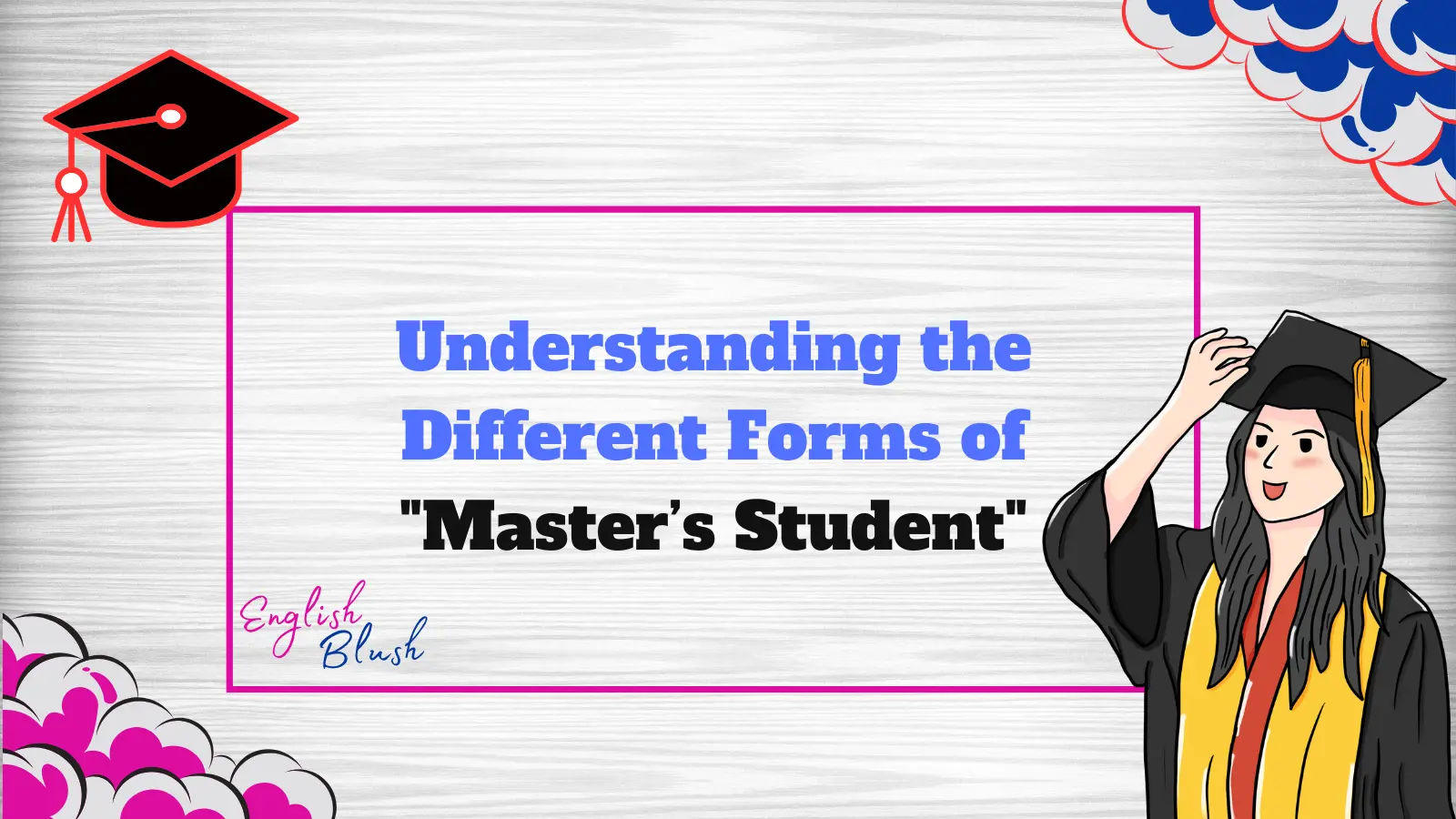When talking about a “Master’s student,” there are different ways to use the words. This article will explain how we use “Master’s Student,” “Master Students,” and “Master’s Students” depending on what we’re talking about. Let’s look at it in easy terms.
Singular Form: Master’s Student
The word “Master’s” in “Master’s Student” is talking about one person. If you’re talking about just one person who is studying for a Master’s degree, you use Master’s student.
- Example: “She is a Master’s student.”
This shows that there is one student. It is singular.
Plural Form: Master Students
Now, if we are talking about more than one person, we change the word Master’s to Master and simply make “student” plural. So, we say Master students.
- Example: “Master students are working on their theses.”
In this case, we have more than one student. It’s plural, which means there are multiple students.
Plural Possessive Form: Master’s Students
If you are talking about more than one student and something belongs to them, we use Master’s students to show that it belongs to the group.
- Example: “The Master’s students’ research papers were all excellent.”
Here, we show that the research papers belong to the students. It’s the possessive form, but since we’re talking about more than one student, the apostrophe comes after the s.
Table: Easy Guide to “Master’s Student” Forms
Here is a simple table to help you remember the different forms:
| Form | Example | Explanation |
|---|---|---|
| Singular (One student) | “She is a Master’s student.” | One student who is working on a Master’s degree. |
| Plural (Multiple students) | “They are Master students.” | More than one student who is studying for a Master’s degree. |
| Plural Possessive (Belongs to more than one) | “The Master’s students’ research was impressive.” | The research that belongs to the group of students. |
When Do We Use Each Form?
- Singular: Use it when you’re talking about only one student. For example, if you’re talking about yourself or a friend .Example: “He is a Master’s student at the university.”
- Plural: Use this when you’re talking about more than one student, but you’re not showing ownership. Example: “Master students work hard on their projects.”
- Plural Possessive: Use this form when the students own something. Example: “Master’s students’ work is often very challenging.”
Key Takeaways
- “Master’s student” = one student.
- “Master students” = more than one student.
- “Master’s students” = more than one student who own something.
We use these forms depending on how many students we’re talking about and whether we want to show ownership. The key is the apostrophe! Always remember:
- Singular = one student, use Master’s.
- Plural = more than one student, use Master students.
- Plural Possessive = when something belongs to multiple students, use Master’s students’.





